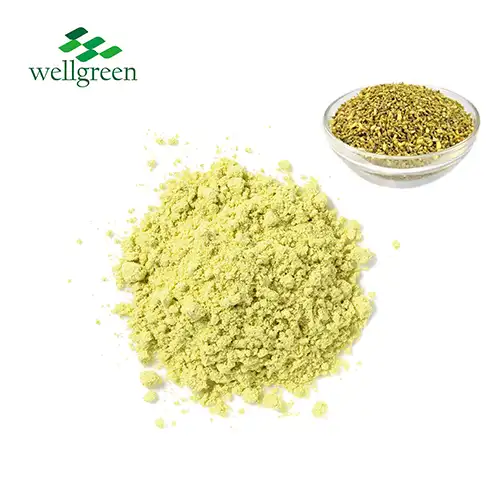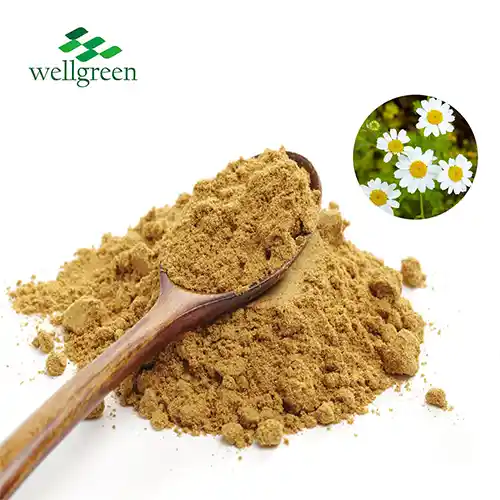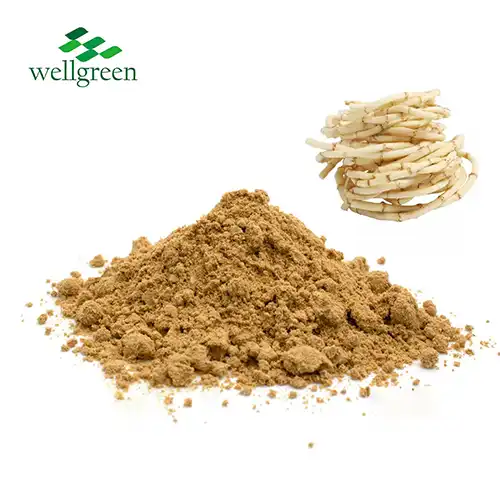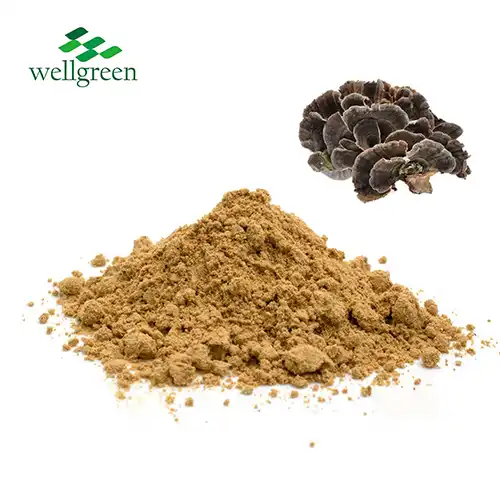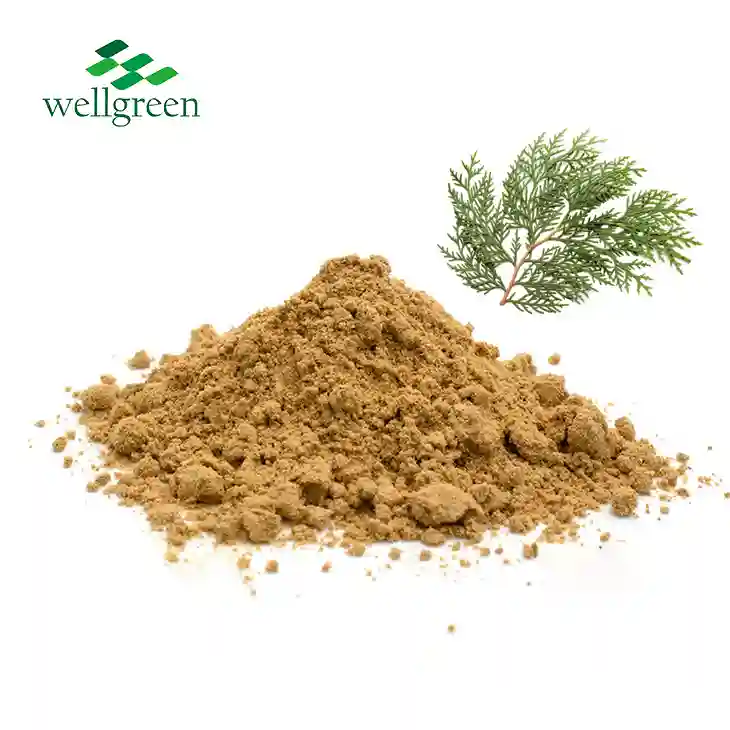What is Piperine?
2024-01-16 15:09:40
Piperine, the bioactive compound responsible for the pungency of black pepper, has garnered attention not only for its part as a culinary spice but also for its implicit health benefits. This guide delves into the multifaceted aspects of piperine powder, exploring its origins, parcels, and the different ways it influences mortal health.
 Piperine is generally set up in black pepper( Piper nigrum) and is responsible for the spice's characteristic taste. While black pepper is the primary source, piperine is also present in other pepper kinds, similar as white and green pepper. Piperine belongs to the family of alkaloids, characterized by a cyclic amine structure. Piperine is responsible for the pungent taste and distinctive aroma associated with black pepper. Piperine is famed for its capability to enhance the bioavailability of colorful nutrients, particularly curcumin from turmeric. This property makes it a precious addition to formulations aiming to maximize the absorption of crucial nutrients. Piperine exhibits inhibitory goods on certain enzymes involved in medicine metabolism, potentially impacting the bioavailability of pharmaceutical composites. Studies suggest that piperine may modulate the exertion of cytochrome P450 enzymes, impacting the metabolism of medicines and xenobiotics. Piperine's interaction with neurotransmitter systems and its anti-inflammatory parcels raise interest in its implicit part in supporting brain health. Piperine may modulate neurotransmitters similar as serotonin and dopamine, impacting mood and cognitive function.
Piperine is generally set up in black pepper( Piper nigrum) and is responsible for the spice's characteristic taste. While black pepper is the primary source, piperine is also present in other pepper kinds, similar as white and green pepper. Piperine belongs to the family of alkaloids, characterized by a cyclic amine structure. Piperine is responsible for the pungent taste and distinctive aroma associated with black pepper. Piperine is famed for its capability to enhance the bioavailability of colorful nutrients, particularly curcumin from turmeric. This property makes it a precious addition to formulations aiming to maximize the absorption of crucial nutrients. Piperine exhibits inhibitory goods on certain enzymes involved in medicine metabolism, potentially impacting the bioavailability of pharmaceutical composites. Studies suggest that piperine may modulate the exertion of cytochrome P450 enzymes, impacting the metabolism of medicines and xenobiotics. Piperine's interaction with neurotransmitter systems and its anti-inflammatory parcels raise interest in its implicit part in supporting brain health. Piperine may modulate neurotransmitters similar as serotonin and dopamine, impacting mood and cognitive function.
Piperine, the unsung hero behind black pepper's bold flavor, extends its influence far beyond the realm of culinary delights. From enhancing nutrient absorption to potential neuroprotective and anti-inflammatory effects, piperine powder continues to captivate researchers exploring its multifaceted contributions to human health.
What does piperine do for the body?
Piperine, the bioactive compound responsible for the pungency of black pepper, has garnered attention for further than just its capability to season up refections. This part delves into the multifaceted part of piperine in the mortal body, exploring its implicit health benefits and physiological impact.
One of piperine's most famed places is its capacity to enhance nutrient absorption. Studies suggest that piperine can increase the bioavailability of colorful nutrients, including curcumin, the active element in turmeric, and other vital composites like beta- carotene. Piperine has exhibited thermogenic properties, meaning it may contribute to the generation of heat in the body. This thermogenic effect could potentially support weight management by influencing metabolic processes. Piperine possesses antioxidant properties, aiding in the neutralization of free radicals. By scavenging these reactive molecules, piperine may contribute to reducing oxidative stress and supporting overall cellular health. Emerging research suggests that piperine may have neuroprotective effects. It could potentially contribute to brain health by influencing neurotransmitter activity and exhibiting antioxidant properties. Piperine may influence the levels of neurotransmitters like serotonin and dopamine. These neurotransmitters play a crucial role in mood regulation and cognitive function.
While organic piperine powder shows promise for various health benefits, individual responses can vary. Some individuals may be more sensitive to the compound, and excessive intake could lead to adverse effects. Individuals taking medications should exercise caution, as piperine may interact with certain drugs. Consulting with a healthcare professional is advisable. Piperine, the unsung hero behind black pepper's spiciness, unfolds as a fascinating compound with potential health-promoting properties. From its role in nutrient absorption to its impact on metabolism and neuroprotection, piperine's diverse effects warrant continued exploration for a more comprehensive understanding of its contributions to human health.
Is piperine good or bad for you?
 Piperine, the active compound set up in black pepper, has garnered attention for its implicit health benefits. still, like numerous composites, piperine has both positive and negative aspects. This guide delves into the multifaceted nature of piperine, shedding light on its positive attributes as well as the debates surrounding its use.
Piperine, the active compound set up in black pepper, has garnered attention for its implicit health benefits. still, like numerous composites, piperine has both positive and negative aspects. This guide delves into the multifaceted nature of piperine, shedding light on its positive attributes as well as the debates surrounding its use.
Piperine is celebrated for its capability to enhance the bioavailability of colorful nutrients, including curcumin from turmeric. Its presence in black pepper has been linked to bettered immersion of essential vitamins and minerals. Studies suggest that piperine exhibitsanti-inflammatory parcels, potentially contributing to reduced inflammation in the body. Piperine may intrude with certain specifics, affecting their absorption and efficacity. individualities on medication should consult healthcare professionals before incorporating high boluses of piperine into their diet. In some cases, piperine consumption has been associated with gastrointestinal discomfort, including heartburn or worried stomach. perceptivity to piperine varies among individualities. While piperine's implicit benefits are interesting, temperance is pivotal. inordinate input may lead to adverse effects, particularly for those with certain medical conditions or sensitivities. Piperine's community with curcumin, a potentanti-inflammatory emulsion in turmeric, is well- proved. Combining black pepper with turmeric in culinary practices can enhance the absorption of curcumin. Piperine has been linked to increased metabolism and fat burning in some studies, suggesting a implicit part in weight operation. still, individual responses may vary.
Piperine powder bulk, when consumed in moderation through culinary sources like black pepper, can contribute positively to health. Its potential benefits in enhancing nutrient absorption and exhibiting anti-inflammatory and antioxidant properties are promising. However, cautious consideration of its dosage and potential interactions is crucial for a balanced and informed approach.
Conclusion
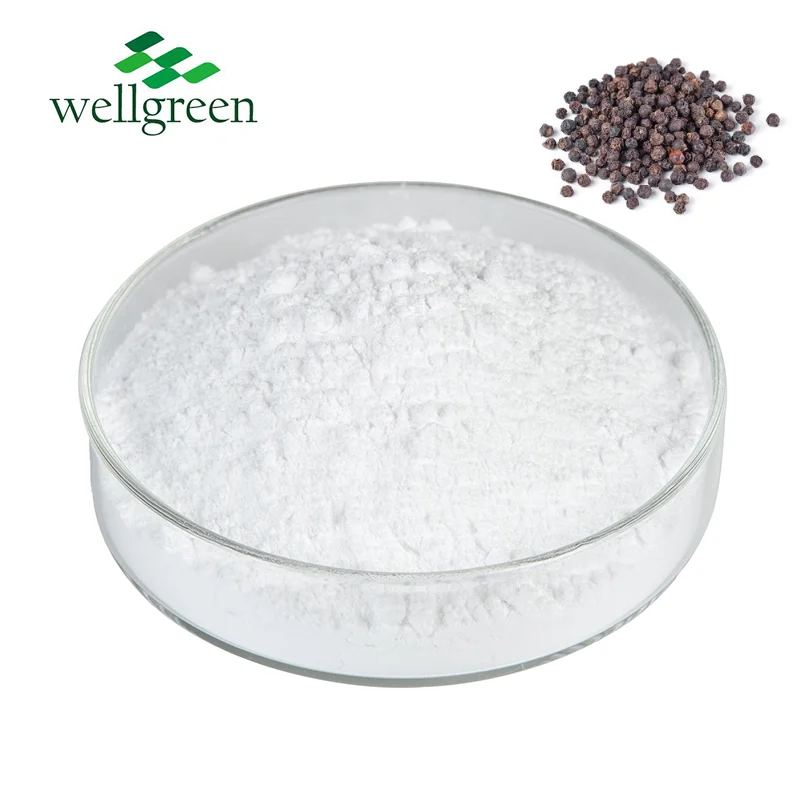 Piperine is a natural compound found in black pepper that has a range of beneficial effects on the body. It enhances the absorption of other nutrients, has anti-inflammatory and antioxidant properties, and may help prevent chronic diseases. While generally considered safe for consumption, it is important to use piperine in moderation and consult with a healthcare professional if you have any concerns.
Piperine is a natural compound found in black pepper that has a range of beneficial effects on the body. It enhances the absorption of other nutrients, has anti-inflammatory and antioxidant properties, and may help prevent chronic diseases. While generally considered safe for consumption, it is important to use piperine in moderation and consult with a healthcare professional if you have any concerns.
WELLGREEN is an innovation-driven manufacturer of herbal extracts since 2011 certified by ISO9001:2015, ISO22000, HALAL, KOSHER, HACCP, and Organic Certificate. If you need piperine powder, please contact us immediately, E-mail:wgt@allwellcn.com We can supply customized service as per your request.
References:
1.Atal, C. K., Dubey, R. K., & Singh, J. (1985). Biochemical Basis of Enhanced Drug Bioavailability by Piperine: Evidence that Piperine Is a Potent Inhibitor of Drug Metabolism. Journal of Pharmacology and Experimental Therapeutics, 232(1), 258–262.
2.Shoba, G., Joy, D., Joseph, T., Majeed, M., Rajendran, R., & Srinivas, P. S. (1998). Influence of Piperine on the Pharmacokinetics of Curcumin in Animals and Human Volunteers. Planta Medica, 64(04), 353–356. doi:10.1055/s-2006-957450.

